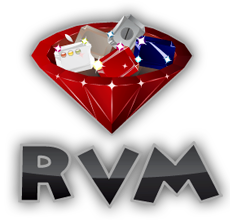It's time to
start giving
back
The problem
The myriad of tools that are relied upon by developers everyday are built and maintained almost exclusively by unpaid volunteers, and the maintainers of open-source projects, our digital infrastructure, are in desperate need of financial support. Because code is less charismatic than a hit YouTube video or Kickstarter campaign, there is little public awareness of and appreciation for this work. As a result, there is not nearly enough institutional support for the output that sparked an information revolution and is the backbone of our digital reality.
Just like physical infrastructure, digital infrastructure needs regular upkeep and maintenance. Without effective support for open-source authors work, not only will their labor go uncompensated, but the digital world risks security breaches, interruptions in service, and slowed innovation.
The challenge
As a industry we haven't established the conditions where companies are readily able to mitigate these risks. The free software community has spent a lot of time and effort at discussing user freedoms however they have been almost silent on the unintended consequences.
Diversity
Volunteers by definition are made up by those whom have the time to volunteer and paying for resources that are being consumed broadens the list of people who can do open-source. A recent analysis of GitHub found that just 5.4% of open source contributors were women, compared to roughly 15 to 20% of technical roles at software companies overall.
Our Vision
Think ahead, secure your supply chain.
Actions speak louder than words
Change requires actions. This what we do:
- WE’RE FUNDING OPEN SOURCE
– DevX Conf is funding open-source and you get to decide how funds are distributed.
- DevX Conf is a non-profit event. Every surplus is donated. - Sharing our experiences with funding open-source projects and insights for maintainers whom wish to become financially independent.
- Encouraging people, companies and conferences to secure their supply chain and acting as a role model for further generations.
- Do you have more ideas on how funding can foster a diverse community? → Please get in contact
Open-source Projects we supported last year
Last year the following opensource projects were supported with USD $10,000 using Quadratic Funding and the distribution of votes by the attendes. This year we are doing it again and thanks to support from our partners the amount has increased to $22,600 USD 🦄

Do you want to join in on our journey of funding open source?
Here is what you can do:
- 1- Generate the bill of materials in your commerical software.
- 2- Identify whom your unpaid vendors are.
- 3- Mitigate your supply chain risks by funding open-source maintainers.
Shape the future you want to live in
When Heartbleed was discovered, OpenSSL was maintained by a handful of volunteers and only one of whom worked full-time. The security flaw caused billions of dollars of economic damage yet at the time yearly support to the OpenSSL project only US$2,000.
Much has changed since the 1st of Feburary 2012 and the infrastructure to financially support open-source maintainers now exists thanks to the efforts of OpenCollective and GitHub Sponsors.
It is important that we all do our part in funding maintainers as it is importance that maintainers achieve income diversity as that enables roadmap and project independence.
There are less than 2100 people in the inner GitHub maintainer community. What would the future look like if they empowered to become independent artists?
If one of those people can help more people better understand a technology or improve the developer experience for an entire ecosystem what is the worth/value of that and why aren’t we doing that yet?
Recommended books

The Unseen Labor Behind Our Digital Infrastructure
Nadia Eghbal in 2016 with the support of the Ford Foundation authored an extensive report into the unseen labor behind our digital infrastructure.
Eghbal outlines, digital infrastructure should be treated as a necessary public good. Free public source code makes it exponentially cheaper and easier for companies to build software, and makes technology more accessible across the globe. However, there is a common misconception that the labor for open source projects is well-funded. In reality, it is largely created and maintained by volunteers who do it to build their reputations, out of a sense of obligation, or simply as a labor of love.
Read Report